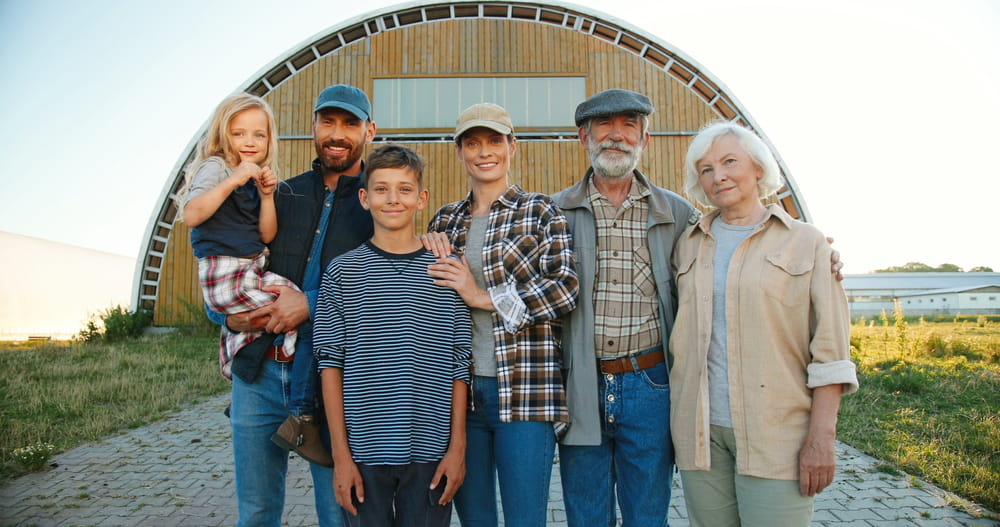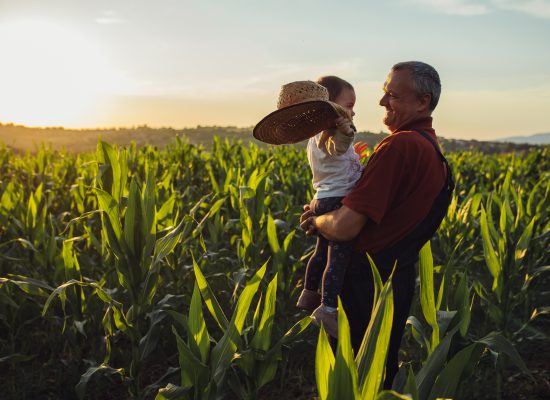Farmers have historically been unfairly disadvantaged for selling their farm corporations to their children. This disadvantage may finally be eliminated in January 2022.
Traditionally, farmers have had two main methods of transferring their farms to their children or grandchildren:
1. Gifting the Farm
The simplest way was to gift the shares of the farming operation to their children and allow them take over. This can be done relatively efficiently and easily, and, because of the Income Tax Act, can be completed without incurring capital gains taxes at the time of the transaction.
Given that it is not overly complicated and it is tax-efficient, it is certainly an option that many farmers consider. But, why is the option perhaps not the most viable?
The greatest downside to this approach is that there is no cash exchanged. While certain farm families may be able to gift the farm and not receive payment in exchange, many are not in that fortunate position and do require cash flow to maintain their lifestyle and income needs in retirement.
2. Selling the Farm Using an Estate Freeze
The second most common way to transfer a farm to the next generation is by using an estate freeze.
Estate freezes are not unique to the agricultural space but can be very effective in farm transitions. They work because they allow for a gradual payout and transition of control from the parents who are transitioning. If structured appropriately, all future growth of the farming corporation will be taxed in the hands of the next generation (children or grandchildren) and not in the hands of the parents. One of the greatest benefits is that the farming operations can be handed off to the children before ownership and overall control. In other words, it can allow the parents to ensure their children are ready to take over and will be able to effectively manage the farm before they fully step away. They can also use this time to ensure that they, themselves, are ready to retire and not be involved in the operations.
For example: Mom and dad own a crash crop operation consisting of 800 acres of farmland, buildings, and equipment. This operation is structured as a corporation and is valued at $10 million.
Mom and dad own all the common shares of the family corporation. They exchange these common shares worth $10 million for new shares that have a set, unchanging value of $10 million. In other words, regardless of how much the farm is worth in the future, these new shares will not change in value. The children subscribe for new common shares for that corporation. Any growth over and above the $10 million value of the farm is reflected in the new common shares owned by the children.
On an annual basis, mom and dad can be paid by redeeming a portion of their frozen special shares. They control what amount of these shares gets redeemed or cancelled over time.
Essentially the farming operation and the children are gradually paying them off over time and helping to sustain their retirement needs. In doing this, the parents now have a pseudo pension plan. As these shares get cancelled or redeemed, mom and dad will have income and will pay personal income taxes to the extent that there is a cancellation of shares or a dividend, allowing them to spread out their taxes over time.
While this approach makes sense, there are issues that are specific to farming corporations. Specifically, there is a disadvantage when farmers sell shares to children.
On cancellation of said shares, the income is taxed as dividends in the hands of the parents.
Dividends are taxed at a high rate of 47.74% (Ontario)
Alternatively, if the farm corporation was sold to an arm’s length third-party purchaser (as opposed to the children), the gains on the farm could be treated as a capital gain. Capital gains attract a much more favorable tax rate of 26.76% or can even have 0% taxation for a portion.
Up to $1 million of the farm value per person selling to a third party could be tax free. When we have a situation where the shares of a private corporation are sold to a third party, the gains are treated as capital gains. And when we have a capital gain on a qualified farm property, shares of the family farm corporation can potentially access the Lifetime Capital Gains Exemption (LCGE). For dispositions of qualified farm properties, the LCGE is $1 million per person selling. In other words, when eligible, the first million dollars is not taxed at all. This amount can be doubled when the farm is co-owned by spouses.
As the tax rules stand, the LCGE cannot be accessed when selling to one’s offspring instead of a third party. Farmers are majorly disfavoured to sell to their children as all the gains on the farm will be taxed at 47.74%. In our above example, the tax payment could be up to $4.7 million.
If on the other hand, mom and dad sold the farm to a third-party, they would pay $2.7 million. If they could take advantage of the LCGE on top of this, it would further reduce their taxes to $2.14 million. Overall, this gives the family a $2.63 million tax advantage for selling the farm outside the family. Seems unfair, doesn’t it?
Bill C-208
Bill C-208 seeks to solve tax unfairness by allowing a transfer to children or grand-children to be treated in the same manner as the sale to an arm’s length third-party.
Most recently, the bill was re-introduced to Parliament by Larry Maguire (MP for Brandon-Souris, Manitoba) as a private member’s bill. It made its way through the House of Parliament in early 2021 where it passed. It was then approved by the Senate and received Royal Assent on June 29, 2021, making it law.
However, the Department of Finance has delayed the implementation of this bill. While farmers across Canada are excited for this newest development, it is currently in limbo.
While it may take time to formalize the plan, it is never too early to start!
Interested in Farm Succession Planning? Follow along as David Szalkai, our Insurance & Estate Planning Advisor, discusses a variety of different topics related to Farm Succession in our new video series.
Access the complete series here.
The views expressed in this commentary are those of Tall Oak Capital Advisors as at the date of publication and are subject to change without notice. This commentary is presented only as a general source of information and is not intended as a solicitation to buy or sell specific investments, nor is it intended to provide tax or legal advice. Statistics, factual data and other information are from sources Tall Oak believes to be reliable but their accuracy cannot be guaranteed. This commentary is intended for distribution only in those jurisdictions where Tall Oak Capital Advisors are registered. Securities-related products and services are offered through Raymond James Correspondent Services Ltd., member Canadian Investor Protection Fund. Insurance products and services are offered through Gryphin Advantage Inc., which is not a member-Canadian Investor Protection Fund. This commentary may provide links to other Internet sites for the convenience of users. Tall Oak Capital Advisors is not responsible for the availability or content of these external sites, nor does Tall Oak Capital Advisors endorse, warrant or guarantee the products, services or information described or offered at these other Internet sites. Users cannot assume that the external sites will abide by the same Privacy Policy which Tall Oak Capital Advisors adheres to.




